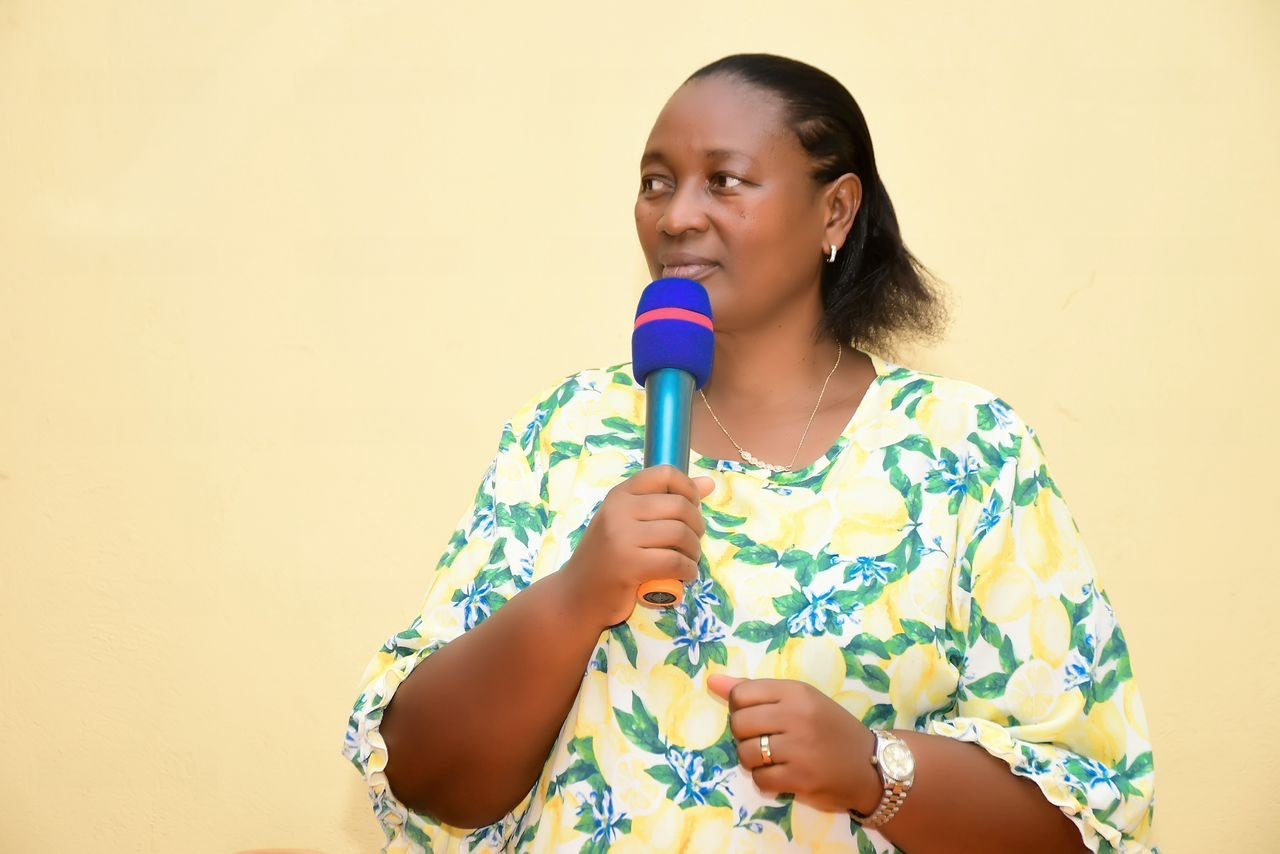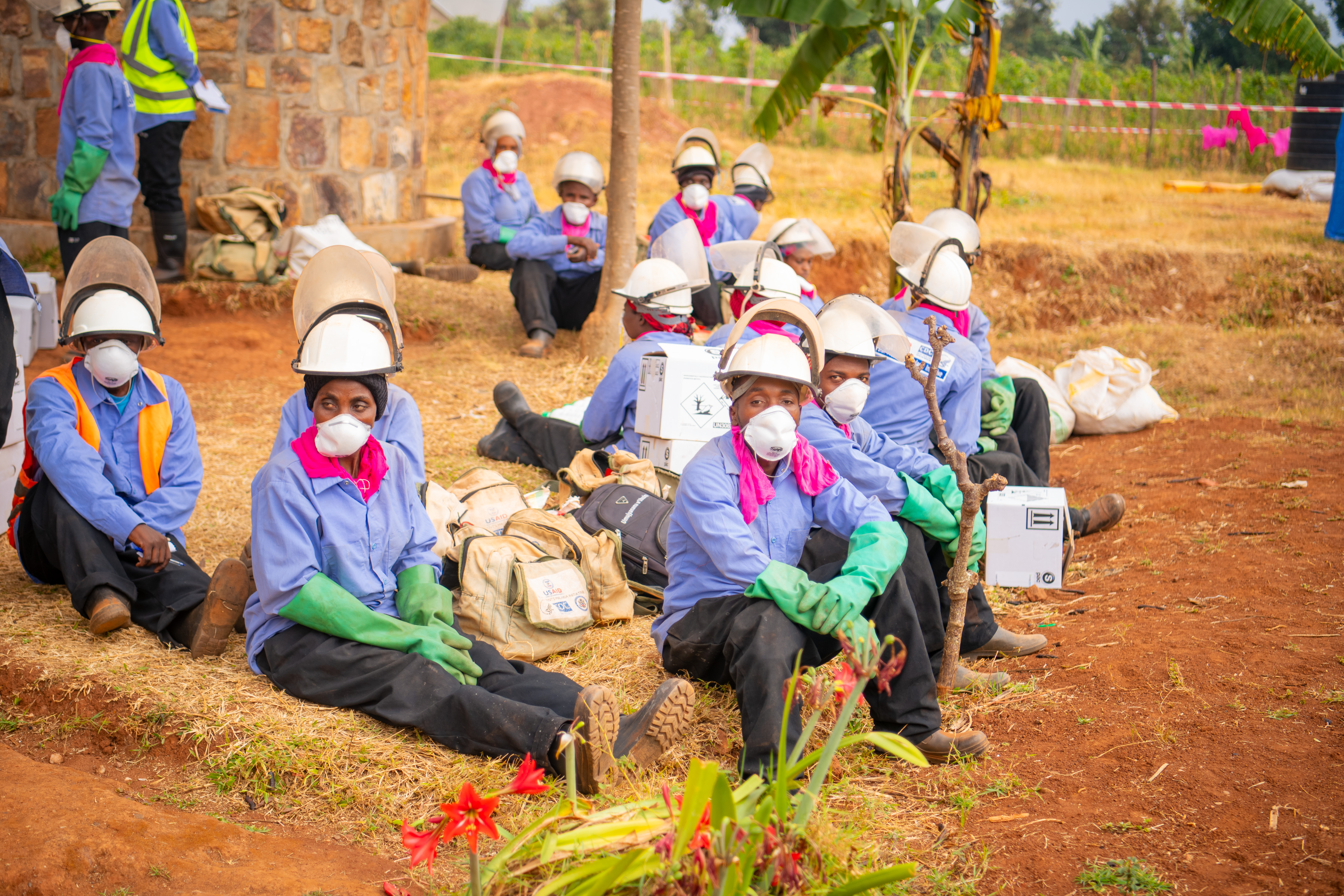Rwanda
Juliet Murekatete, the vice mayor for social affairs in Rwanda’s Nyagatare District, is a true malaria warrior. Originally a teacher, Juliet’s passion for Indoor Residual Spraying (IRS) stems from surviving a severe case of malaria that affected her for over three years. Since 2019, she has been an active participant in Nyagatare district’s IRS operations, taking part in IRS spray campaigns and sharing her knowledge with all 653,861 people in her community. Juliet recently took the time to speak with us to discuss her work and the difference she is making in Nyagatare district.

Tell us about yourself and your career, and what has made you go out and take part in the IRS campaigns.
I originally studied education to become a teacher and in 2013, I became a head teacher. In 2018, I became the vice mayor of the Nyagatare district in charge of social affairs (education, health, and social development) and the welfare of the community. Before assuming this role, I did not know anything about IRS. I became educated about IRS when malaria started affecting my household. The spraying of IRS completely ended the threat of mosquitoes in my house, which led me in 2019 to start to work with the IRS team. Being a victim of malaria and suffering for more than three years, constantly being hospitalized and going to health centers, I feel that I must be involved so that I can help protect my constituents and have them learn about IRS and take part in it.
You have made an impact in your district by taking part in IRS campaigns. Can you describe the process and challenges that you go through?
The process is intense, but we work well together to achieve our goal. First, we involve the local leaders, community health workers, and others to plan the activities. To take the process to the next step, we train the spray operators and hold trainings for local leaders. After the trainings, we communicate our campaign spray plan by radio, social media, and mobile alerts to mobilize people to prepare their communities. As well, awareness campaigns are done in churches that partner with us, and we hold community meetings every Tuesday to share our messages.

We face many challenges as well, including people reluctant to have their homes sprayed, although that number has been reduced. People also ask why IRS spraying can’t happen twice a year, but we only spray once a year in August. Lastly, the three largest sectors in Nyagatare district—Karangazi, Rwimiyaga, and Nyagatare—are extremely spread out with scattered houses that pose challenges given how spread out they are. But we don’t complain, and the spray teams get the work done.
What impact have you seen in the community by visiting households and promoting IRS?
We hear a lot of testimonials, first, that the awareness of the benefits of IRS has increased. When we are supervising, some people tell us that the community health workers circle back to people whose houses were missed because these household members come to them saying they want IRS, and they don’t want their houses to be missed. The difference from 2018 to 2023 is outstanding. People are prepared ahead of time for the campaign and go on with their days as usual while the spraying is conducted. We also continue to mobilize the community for other, secondary preventative measures even when we’re not spraying, such as clearing bushes, sleeping under the nets, and using other methods. This is our best way to reduce malaria.
What do you find most challenging and rewarding about your work?
As noted, some of the sectors within our district are quite spread out and rural, and this is challenging for the teams that must reach all these houses. Another thing is that we have new households that come from other districts where IRS isn’t being done (so they may be reluctant to have their homes sprayed), but we use community mobilization to address this challenge.
My work is extremely rewarding. First off and most importantly, cases are decreasing. I am also happy about the partnerships that we have created, under the leadership of His Excellency Paul Kagame. I enjoy the process of spraying– double-checking which houses are not yet sprayed and completing everything within 20 days (a regular campaign schedule). I’m proud of our system and our partnership with PMI Evolve and the district and support from USAID and the U.S. President’s Malaria Initiative.
What are your hopes for the future of Rwanda in terms of malaria control and prevention?

My hope for the future in terms of malaria control is that with these measures and the good professionals on our team, we can end malaria.
What would you like more people in Rwanda to know about mosquitoes and malaria?
First of all, mosquitoes and malaria can be eradicated and with our combined (or joint) efforts, we can do this. We need a commitment to sustain and eradicate malaria. To achieve this, everyone should be concerned and aware of their opportunities to help us protect themselves (sleeping under nets, clearing brush). Our partners are here to help us, and we want everyone to be engaged. Malaria can kill people and prevent the development of our country. Please, make a strong and sustained effort to respect all measures taken by our leaders and their partners to help us end malaria together.


